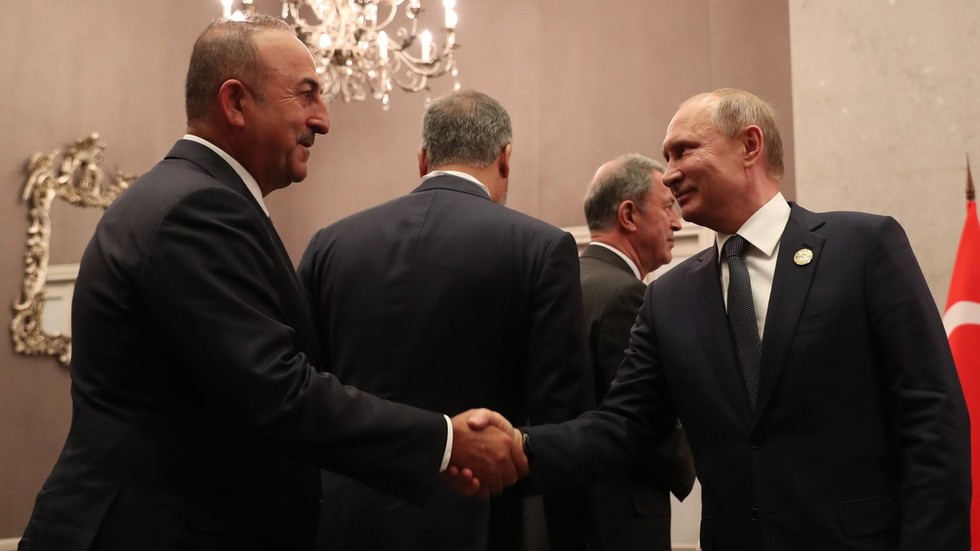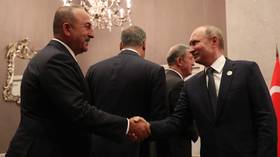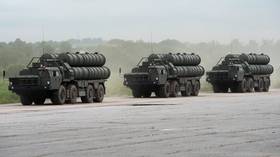
Ankara is putting its own economic interests first, the country’s top diplomat has explained

Turkish Foreign Affairs Minister Mevlut Cavusoglu (L) shakes hands with Russian President Vladimir Putin (R). © Kayhan Ozer/Anadolu Agency/Getty Images
Ankara has no plans to support the Western economic restrictions against Russia, foreign minister Mevlut Cavusoglu said in an interview on Monday.
Türkiye’s top diplomat made the comments to the Lider Haber TV channel in the run-up to the country’s presidential and parliamentary elections, due to take place on Sunday.
“We are not going to join the unilateral sanctions imposed against Russia by the US and the EU. Our own benefit and prosperity come first,” Cavusoglu explained, as quoted by the TASS news agency.
The minister also criticized the opposition presidential candidate Kemal Kilicdaroglu, who has said he would give priority to developing ties with the West. According to Cavusoglu, the rival to incumbent president Recep Tayyip Erdogan has shown himself to be inconsistent in his statements; at one rally, Kilicdaroglu reportedly said that nothing would endanger the relationship between Türkiye and Russia.
Reports emerged in March of Türkiye blocking some transit shipments destined for Russia, in response to recent pledges by Brussels and Washington to enforce anti-Russian sanctions and to stop the supply of sanctioned products via third parties. Türkiye’s Ministry of Trade provided no official confirmation of the move. It was later reported that Ankara had resumed the transit to Russia of some sanctioned goods of European origin.
The EU has repeatedly voiced concern about the country’s refusal to participate in Western sanctions against Russia, and accused the Middle Eastern state of becoming a ‘transit hub’ for Russia, thus enabling the economic blockade to be circumvented.

Ankara is one of Moscow’s main trading partners, with both sides having pledged to deepen economic cooperation and expand bilateral trade.
Last year, Türkiye and Russia signed a roadmap for economic cooperation that envisages bringing bilateral trade turnover to $100 billion a year. The two have also agreed to introduce the Russian ruble as a settlement currency for bilateral trade, including for Russian natural-gas supply.
Data shows that, around this time last year, Türkiye became one of the top five exporters to Russia. In 2021, it ranked 11th, ahead of the US, France, Japan, Poland and Italy.
For more stories on economy & finance visit RT’s business section




